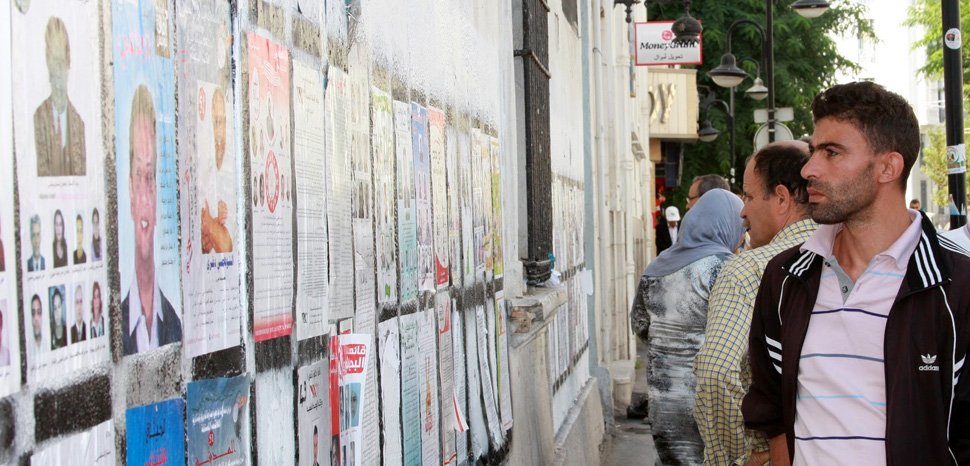Riyaz Patel
With a little over half of votes tallied Monday – a day after Tunisians voted in presidential elections – preliminary results appear to show anti-establishment candidates Kais Saied and Nabil Karoui in the lead.
But both candidates are nowhere close to a majority.
Tunisia’s Independent Higher Authority for Elections (ISIE) said it had gone through 52 percent of ballots, showing Saeid with 18.7 percent of votes and Karoui with 15.5 percent.
Saied, a conservative law professor, and Karoui, a media magnate held in detention since last month, are leading a moderate Islamist candidate and appear set to advance for a runoff vote next month.

A crowded race with 26 presidential contenders has left many otherwise prominent political figures struggling to make a dent in the polls.
Sunday marked the country’s second free presidential poll since the 2011 ‘Arab Spring’ uprising that toppled longtime ruler Zine el-Abidine Ben Ali, whose health has reportedly deteriorated in recent days.

Saied, a 61-year-old expert on constitutional affairs with no prior political experience, ran as an independent.
“My win brings a big responsibility to change frustration to hope… it is a new step in Tunisian history… it is like a new revolution,” the conservative law professor said.
Media mogul Karoui, meanwhile, ran his campaign behind bars amid a money-laundering probe, using his Nessma television station to present himself as a champion of the poor.
His critics, though, describe him as an ambitious, unscrupulous, populist.
Karoui’s detention, just 10 days ahead of the start of campaigning, has been the top story of the election, with polls suggesting his arrest may have boosted his popularity.
The election was brought forward by the death in July of 92-year-old president Beji Caid Essebsi, whose widow passed away on election day.
Additional reporting by Agencies
